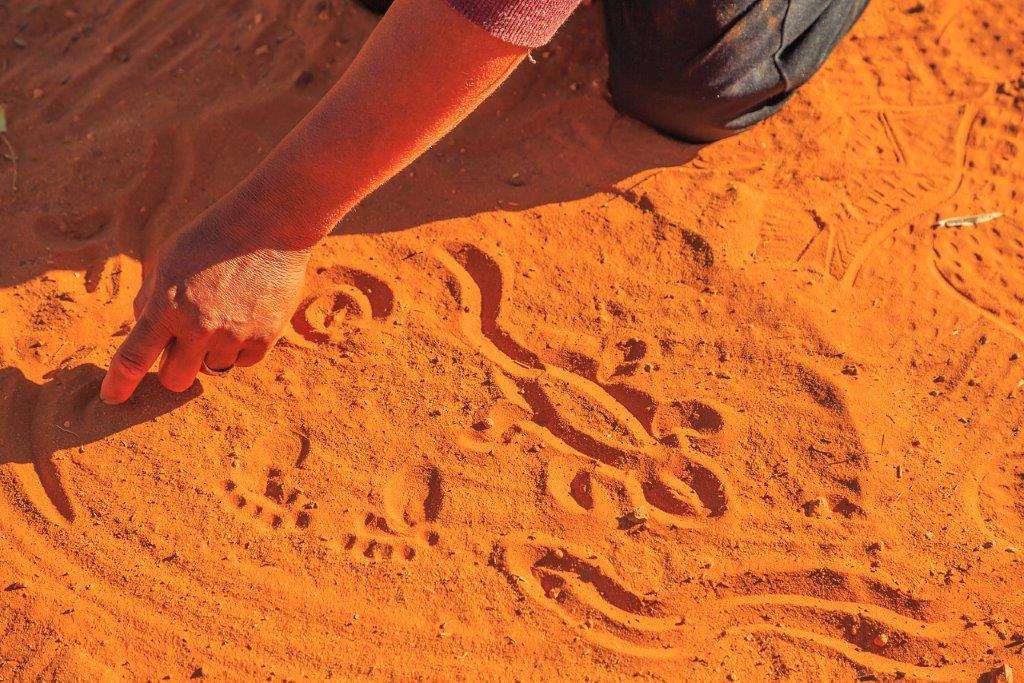Educational tours and travel can provide a unique opportunity for the inclusion of curriculum-linked experiential learning activities, providing the chance for students to immerse themselves in Indigenous and Torres Strait Islander Histories and Culture studies.
Custom designed tours to Central Australia, Far North Queensland, South Australia, and several other locations, put students at the heart of opportunities for genuine indigenous learning, in addition to creating the opportunity to experience the natural beauty, culture, and history of these locations first-hand. Students are rewarded with the opportunity to develop a deeper understanding of Aboriginal culture, music, visual arts, and history while exploring the array of sacred landmarks, rock painting, more current Indigenous art, Indigenous bush tucker, medicinal herbs, gorges, rock formations, and national parks.
Importantly, avoiding “tourist” traps, or a “tourist” approach to Indigenous learning is something we believe is a must, even though it may seem to be the obvious route. Utilising Indigenous-owned businesses is the first step to accessing knowledge and wisdom borne in Indigenous culture and shared by Aboriginal Elders wanting to educate young people. It is too easy just to book tickets for an Aboriginal “show or Corroboree, rather than taking the time to find the right kind of learning at a deeper level.
In aligning with this cross-curriculum priority, we believe that the curriculum heavily supports and encourages learning about our First Nations people and their culture. Creating pathways for children to learn and experience this is crucial to developing meaningful interactions, leading to deeper respect and familiarity to cultivate a better future for everyone.
It’s more important now than ever for students to learn about Indigenous and Torres Strait Islander cultures, helping to build knowledge and experience, not only because of the requirements of their curriculum but for their futures as young Australians who will care about the vibrant culture of these peoples and their impact on Australia going back over thousands of years.
Will our tours cover the aspects of the Indigenous and Torres Strait Islander History and Culture Studies cross-curriculum priorities that we are focusing on?
All of Latitude Group Travel’s educational tours are custom-designed from scratch. There are no “pre-packed” itineraries that we reuse or recycle, ensuring that we are able to work with you and your tour focus to provide curriculum-linked, experiential learning activities for your students. We design tours that can be linked with each of the cross-curriculum priorities, either as a part of subject-specific tours or as tours on their own.
We develop our educational touring programs in accordance with the Narragunnawali Reconciliation in Education framework, which allows schools the opportunity to integrate the Australian curriculum elaborations and descriptions according to the subject content. Whether you are focusing on the Indigenous Dreamtime, the History of Indigenous Living Culture, or Modern Life in Central Australia, Latitude Group Travel is able to curate a tour to support your this cross-curriculum priority, (not forgetting the General Capabilities) and create the most unique and rewarding learning outcomes for your students.
How does Latitude Group Travel create sustainable learning practices while interacting with Indigenous Australia?
All tours created by Latitude Group Travel are made with our Responsible Travel Commitments in mind. We’re dedicated to creating opportunities for positive student engagement with global communities, offering schools a more ethical, sustainable, and conscious way of travelling. Driven to protect the planet we live on, our number one priority with all tours is upholding our commitment to social, economic, and environmental responsibility.
Part of our commitment to sustainability is that we offer schools the opportunity to buy out the carbon footprint created by touring. Using our own carbon calculator, we can determine the cost of this buyout. Schools can rest assured that, should they choose to buy out their carbon footprint, they will have the choice of several gold-standard plans.
The alignment to the Reconciliation Action Plan provides learning opportunities for schools, enabling students to respectfully connect with Aboriginal and Torres Strait Islander histories, cultures, and perspectives in a transdisciplinary capacity, supporting the cross-curriculum priority of Aboriginal and Torres Strait Islander histories and cultures.
In addition to all of what has been touched upon in this article, by combining a subject-specific focus such as STEM, Australian History, and/or Visual Arts with this or any other cross-curriculum priority, tours become more economically viable. This is generally due to a higher number of students on tour, who will gain cross-curricular knowledge of both the CCP and the subject/s, mainly through a range of carefully crafted experiential learning activities.


